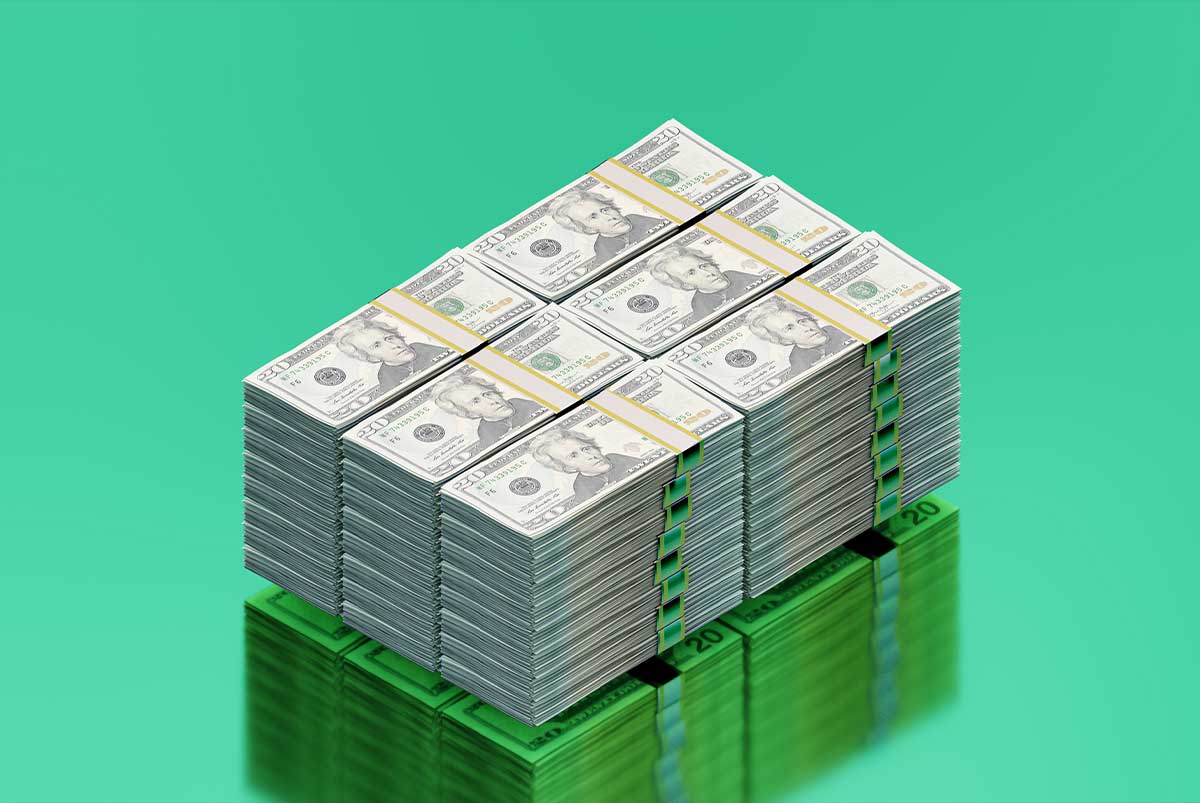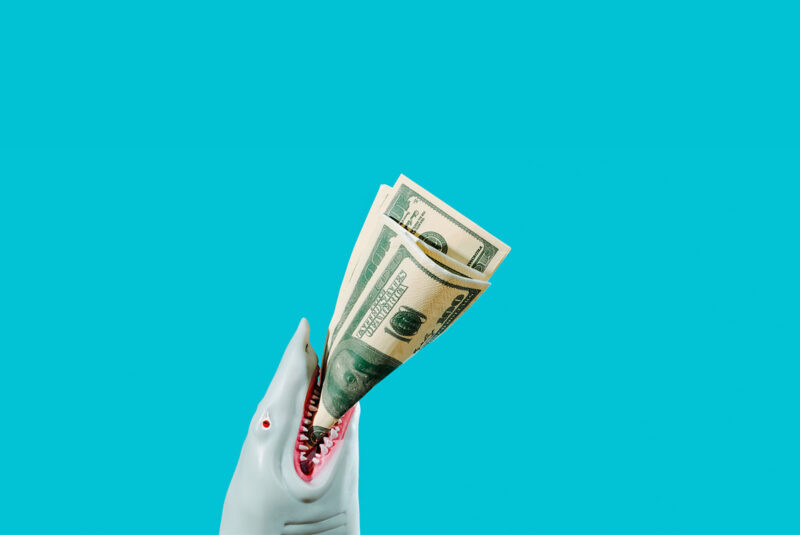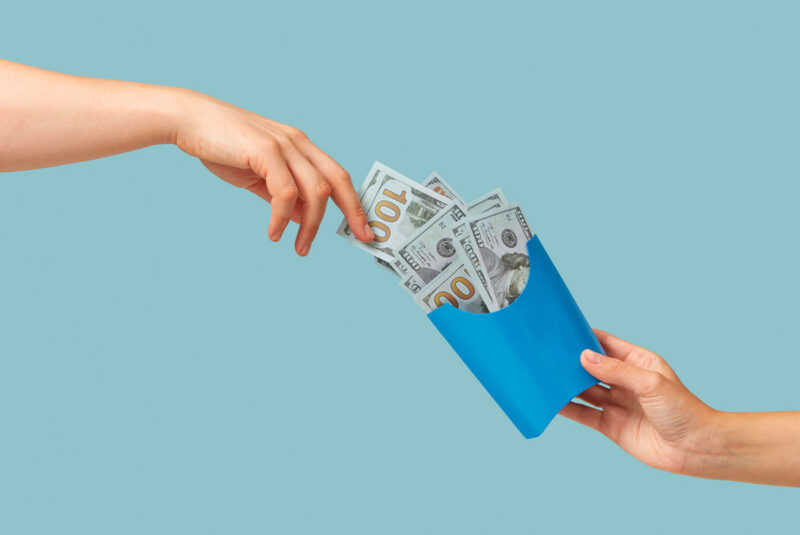Explore your mortgage options
Could you use some extra cash in your bank account – quickly? If you’ve had credit issues or money problems in the past, you might be considering a direct deposit loan. When you need money in a pinch, these quick-turnaround loans give you access to cash fast – but you pay dearly in astronomical interest and fees.
We can help you navigate the world of direct deposit loans, including the different types of direct deposit loans, their pros and cons and direct deposit loan alternatives.
Need Cash?
Applying for a personal loan has never been easier. Get the cash you need with competitive terms from Rocket LoansSM.
Checking your options won’t affect your credit score.
What Are Direct Deposit Loans?
Direct deposit loans are a type of payday loan that offers quick access to money, typically within 24 hours or the next business day. Once you’re approved, the funds are deposited directly into your bank account (hence the name). Direct deposit loans are usually much easier to qualify for than some personal loans, but usually have higher (much higher) interest and APR rates.
Your lender may require your credit score to qualify you for a loan, but you’ll likely be able to get a direct deposit loan even if you have a low credit score.
To repay the loan, you may pay in installments, pay down a line of credit or use another form of repayment over a predetermined period of time.
If you can’t repay the loan in time, you may end up trapped in a cycle of debt – or worse. Direct deposit loans can put you at risk of deep debt, collections and lawsuits. Before you take out a loan, have a plan in place to repay it and avoid a bad situation.
Need Cash?
Applying for a personal loan has never been easier. Get the cash you need with competitive terms from Rocket LoansSM.
Checking your options won’t affect your credit score.
Types of Direct Deposit Loans
You can tap into a few different types of direct deposit loans, including installment loans, lines of credit and title loans.
Installment loans
An installment loan is a lump-sum payment you pay back regularly in installments or monthly payments over a specified amount of time. Part of your monthly payment goes toward the principal amount you borrowed, and the rest goes toward interest.
A benefit of an installment loan is that if you make your monthly payments on time, it may help boost your credit score.
A drawback of installment loans is that you won’t be able to access more money once you take out the loan. You’d have to take out another loan to get more, unlike revolving credit. Plus the repayment period may be lengthy.
Lines of credit
A revolving line of credit works pretty much like a credit card. You can access money on demand up to the total loan amount (aka your borrowing limit). As you repay what you borrow, you can “draw” on the loan again.
Some benefits of a line of credit are that interest only accrues on the amount you withdraw – not the entire amount you borrowed. You’ll likely encounter flexible repayment options. And maybe the biggest benefit is that as you pay down your balance, your borrowing limit replenishes, and you can borrow up to your limit again.
The cons of continuously tapping into a line of credit aren’t as cut-and-dried as installment loans. With installment loans, you borrow a lump sum and pay interest on the entire amount every month.
Some examples of lines of credit include a personal line of credit, a home equity line of credit (HELOC) and a business line of credit.
Title loans
Title loans are short-term loans with short repayment periods, typically 15 – 30 days.
They must be backed by an asset (aka collateral). For example, a car is used as collateral to secure a car title loan. A lender may offer to lend you anywhere from 25% to 50% of your vehicle’s price in exchange for your vehicle’s title.
The biggest downside to a title loan is that if you default on the loan (missed payments or late payments), you could lose the asset you put up as collateral. Missed payments roll over into the next billing cycle and more fees are tacked on.
Pros and Cons of Direct Deposit Loans
We’ve spent a lot of time on the cons side of direct deposit loans, but there are pros, too. Let’s explore both sides of the coin.
PROS of Direct Deposit Loans👍
Direct deposit loans offer quick access to cash. You might see them advertised as “direct deposit loans same day.” That’s because you can usually get your hands on the cash on the same or the next business day.
It typically doesn’t take too long to apply for a direct deposit loan. Applying for a direct deposit loan online is a faster process than applying for a loan at a bank.
It’s all in the name. With a direct deposit loan, the money is directly deposited into your bank account.
You should be able to qualify for a direct deposit loan even with a low credit score.
Some lenders may not require a credit check, which can work to your advantage if you have a less-than-stellar credit history.
CONS of Direct Deposit Loans👎
You’ll pay significantly higher interest rates than you would with personal loans. We’re talking potentially up to 400%. Typically, you repay the loan and its mountain of interest in two weeks or by your next payday.
You may only be able to borrow up to $500. This amount is far less than you might get with a personal loan.
These types of payday loans aren’t allowed in all states. There are limits on whether you can get them in the first place.
Alternatives to Direct Deposit Loans
There are options available to help you avoid the dangers of direct deposit loans. You can try personal loans, cash advances or credit cards.
If you’re a member of a credit union, you should see if they offer payday alternative loans. We’re going to focus on three other alternatives to direct deposit loans.
Personal loans
Personal loans are a type of installment loan. Like a direct deposit loan, a personal loan gets deposited directly into your bank account.
Personal loans provide one-time, lump-sum payments that must be paid back with interest in regular installments, typically over 2 – 5 years.
Personal loans often have longer repayment periods, higher borrowing limits and lower interest rates than direct deposit loans. They may require collateral, but most personal loans are unsecured and won’t require it.
They may also help boost your credit score if you make on-time payments.
To qualify for a personal loan, you may need to meet tougher lender requirements, like a credit score over 600. So if you have bad credit, it’ll be harder to get approved.
Existing Debt Got You Down?
Let Rocket LoansSM help you with a debt consolidation loan. With same-day funding options, you can get back on track fast.
Checking your options won’t affect your credit score.
Cash advances
A cash advance is a way to borrow against your credit card’s line of credit. You can get the money through your bank with a teller or at an ATM.
You don’t need to fill out paperwork, have perfect credit or money in your bank account to get a cash advance, and you can use the money any way you want. If you repay the cash advance on time, your credit score won’t hurt.
The downside to cash advances is the high APR (between 25% and 27% in some cases), the flat fee per advance, ATM fees and bank fees and interest.
It can be a pricey short-term option, but it likely won’t cost as much as a direct deposit loan.
Credit cards
You may want to consider using a credit card as an alternative to direct deposit loans.
You can build credit with credit cards. They offer more security than cash, and many of them let you earn rewards. The average credit card interest rate is around 15% – 20%. It’s still high, but typically far lower than direct deposit loan rates.
Some credit cards offer low promotional rates or 0% introductory APR for the first 6 – 18 months. Offers like these could help you avoid interest for a while.
Even if you can qualify for a credit card with a low or no APR offer, you’ll need to wait until your card arrives in the mail to use it – which would probably take more time than applying for a direct deposit loan.
Direct Deposit Loans FAQs
Direct deposit loans can cost up to 400% in interest.
Yes, you may be able to get your direct deposit loan on the same day. But it might not come until the next business day. Check with your lender to learn how soon your cash will be deposited.
No, you don’t necessarily need good credit to get a direct deposit loan. In fact, you may be able to get a direct deposit loan without a credit check.
Like direct deposit loans, personal loans go into your bank account directly.
Consider Personal Loans With Direct Deposit
You may need money fast, but you shouldn’t make a hasty decision that ends up burying you under a mountain of debt.
Direct deposit loans are a type of payday loan that gives access to money quickly. But if you struggle to pay the loan back, it could just as quickly destroy your credit and keep you trapped in a cycle of debt.
You should know what your options are. Weigh the pros and cons of direct deposit loans – and maybe more importantly – look into alternatives, including personal loans, cash advances or credit cards.
Unless you know how you’re going to pay back a direct deposit loan, it’s best to avoid them at all costs. And consider working on building your credit so the next time you need to borrow money, you’ll qualify for better loan terms.
See What You Prequalify For
Get prequalified offers for personal loans from Rocket LoansSM within seconds. Like what you see? Same-day funding is available.
Checking your options won’t affect your credit score.
The Short Version
- Direct deposit loans are a type of payday loan that offers quick access to money, typically within 24 hours or the next business day
- You can tap into a few different types of direct deposit loans, including installment loans, lines of credit and title loans
- Direct deposit loans can put you at risk of deep debt, collections and lawsuits. Before you take out a loan, have a plan in place to repay it and avoid a bad situation




